
PCSK-9 inhibition in patients with recalcitrant hypercholesterolemia has reaped reductions in LDL-C of up to 85% after the first week of therapy.

PCSK-9 inhibition in patients with recalcitrant hypercholesterolemia has reaped reductions in LDL-C of up to 85% after the first week of therapy.

In patients deemed statin-intolerant, lifestyle changes and alternative classes of drugs should be pursued to lower LDL-C.

Despite best efforts with lifestyle modification and adherence to metformin and glimepiride therapy, this man’s A1C continues to rise. What next?

Achieving sustained reductions of hyperlipidemia and blood pressure in a patient with diabetes is not impossible, but it's a challenge. A new study comparing two health systems shows which factors increase the odds of success.
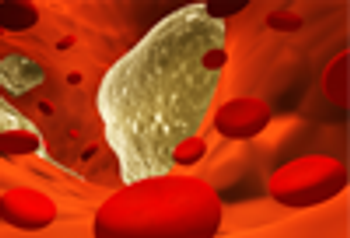
A genetic analysis questions the benefits of raising HDL-C levels to reduce the risk of MI and of the value of HDL-C as a surrogate marker of risk.

High HDL levels track with low MI risk. But a Harvard medical geneticist tells why you may not be able to reduce that risk by intervening to raise them.
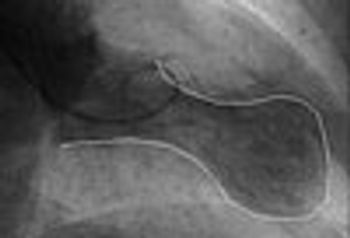
Also known as “broken-heart syndrome,” Takotsubo syndrome is a stress-induced cardiomyopathy.

Findings of the TIPS-2 study, announced at the recent 2012 World Congress of Cardiology, put the promise of the polypill-a simplified, one-size-fits-all approach to prevention of cardiovascular morbidity-back on the table for international discussion. Here, Dr Christopher Cannon puts the TIPS-2 results in perspective.

The elderly patient has had type 2 diabetes for 15 years is now home bound after a stroke. Her HbA1c is 9.6 and she takes only metformin. Review the rest of her laboratory results and propose a management plan.

Would you treat the elevated A1C aggressively-and what would your target level be? Would you consider statins? Dr Shahady invites your insights.

Are these findings another green light for dark chocolate? Some experts say “yes” as they also point to a recommended upper daily “dose.” What does this new research add to the current data on the health benefits of the flavinoid-rich sweet? Drs Payal Kohli and Christopher Cannon discuss study results and what you should tell your patients.

There’s a new way to lower LDL cholesterol levels-by approximately 60% to 80%. Studies unveiled at the 2012 ACC meeting found that an injectable monoclonal antibody, when added to statin therapy cuts LDL cholesterol levels far in excess of what can be achieved with statin therapy alone. Drs Christopher Cannon and Payal Kohli discuss.

Patients with type 2 diabetes should be receiving statin therapy, but many patients who would benefit from these agents are not taking them-and not reaching target lipid levels. A recent study shows that timing of statin initiation can make a difference. Here to put the issue into perspective are Drs Christopher Cannon and Payal Kohli.

Diabetic peripheral neuropathy may develop in patients who have normal or impaired fasting blood glucose or impaired glucose tolerance, precursors to frank diabetes.

Do you consider an LDL of 100 and a non-HDL of 150 significant? What is your diagnosis? Would you consider medication in addition to recommending lifestyle changes? Answers to these quiz questions here.

A 47-year-old man sees you for a check-up. He complains only of low energy and attributes it to recent weight gain. But, there is much more.
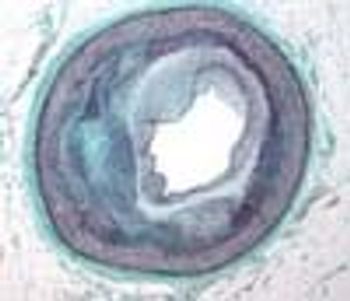
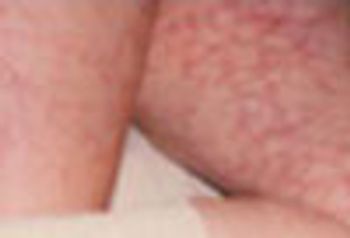
A 62-year-old woman was seen prior to cholecystectomy. She had no cardiac or pulmonary disorders. Examination was unremarkable other than a purplish-reddish, lace-like pattern on the thighs and forearms.
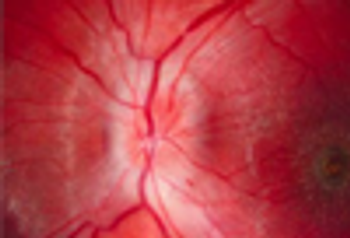
A 17-year-old sexually active young woman presented with sudden loss of vision in the left eye 2 weeks before presentation.

A review of 140 trials and 26 observational studies supports metformin as the best first-line treatment for type 2 diabetes in adults, both stand-alone and in combination with other medications. But second-line treatments are still a judgment call.
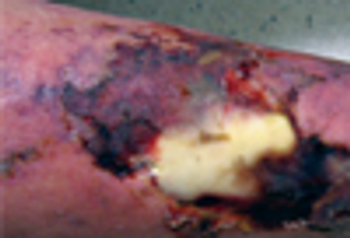
An 88-year-old man presents with a 2-month history of a non-healing ulcer on his right lower limb.

A 44-year-old man presents for a preemployment physical examination. He is healthy, and he currently takes no long-term medications. A detailed review of systems reveals no ischemic chest pain, dyspnea with exertion, orthopnea, or any other symptoms of either coronary artery disease (CAD) or heart failure.

On December 18, 2005, Ariel Sharon, Prime Minister of Israel, experienced the sudden onset of aphasia. Despite being overweight, he had none of the traditional risk factors for cerebrovascular disease-hypertension, history of smoking, diabetes, or elevated cholesterol levels.
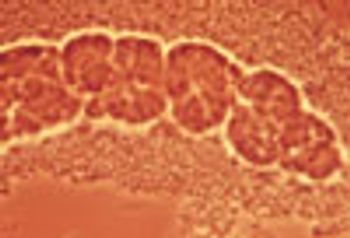
Chronic kidney disease (CKD) has become a burgeoning epidemic. Patients with various stages of CKD initially seek care from their primary care physician; some of these patients sustain acute, reversible renal injuries as well.

Type 2 diabetes mellitus is an epidemic with serious and fatal complications. Some predictions estimate that 440 million persons will have this disease by 2030.